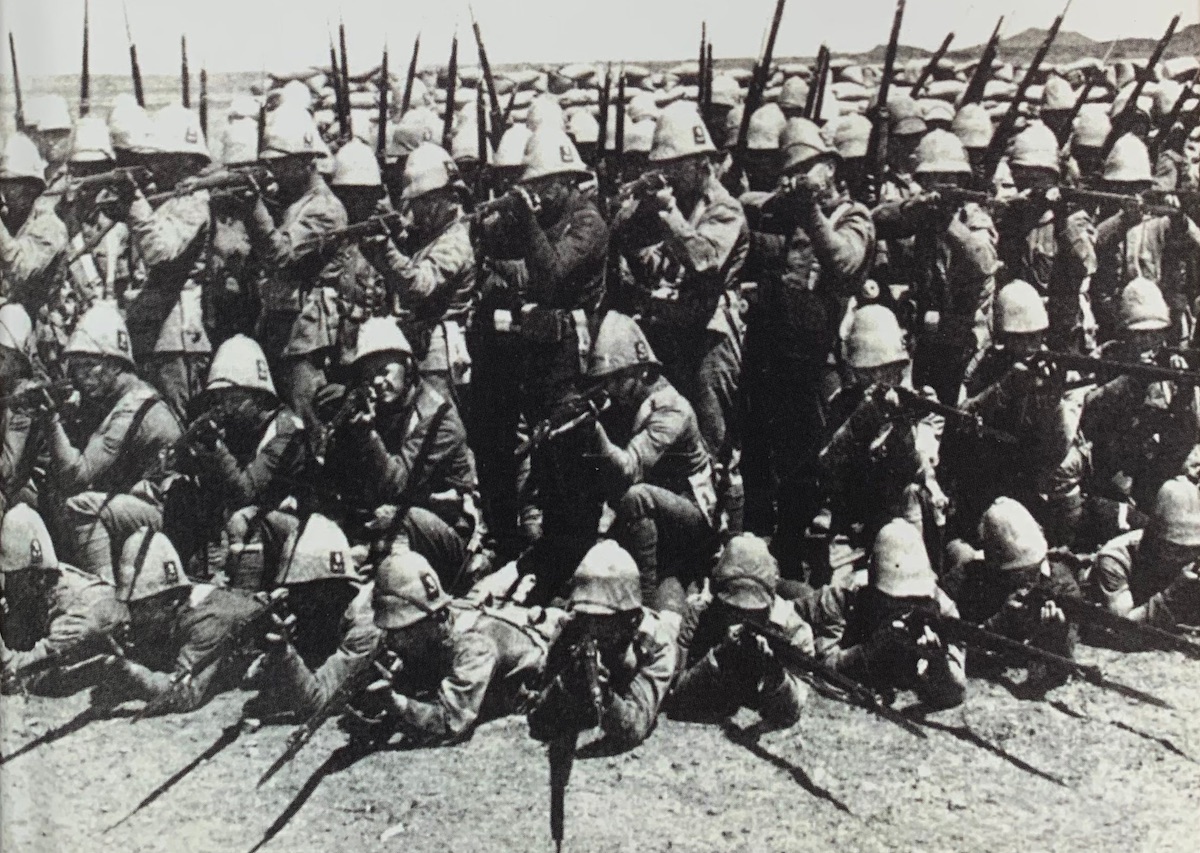
By Brian Feeney (for the Irish News)
Caroline Elkins has been mentioned here before. She’s a Professor of History at Harvard who first came to prominence for exposing Britain’s murderous record in Kenya in Britain’s Gulag: The Brutal End of Empire in Kenya.
Last year she published Legacy of Violence: A History of the British Empire, a massive, meticulously documented, comprehensive study of the systematised brutality and savagery Britain inflicted to maintain subjugation of colonised peoples across the world and of the ideological foundations of that violence.
She showed that when Britain could no longer maintain control over the violence they had provoked and enacted, as they retreated, they destroyed and hid incriminating evidence of their violence.
Elkins discovered the British had burnt tons of documents and sunk tons more in the Indian Ocean. More importantly, she discovered the British had hidden 8,800 files from 36 former colonies in a vast secret fortress repository at Hanslope Park in Buckinghamshire known as ‘spook central’.
These files exposed in detail what Elkins calls Britain’s system of ‘legalised lawlessness’, by which she means “the incremental legalising, bureaucratising and legitimating exceptional state-directed violence when ordinary laws proved insufficient for maintaining order and control”.
Elkins gives blow-by-blow accounts of how the British manipulated law here during the Troubles as they did everywhere else in British colonies, but just because a new law or order in council was imposed didn’t make it lawful; it was ‘legalised lawlessness’.
In so many examples here Britain’s actions were condemned internationally, most notably by the Council of Europe and the European Court of Human Rights. They don’t care.
With the NI Troubles (Legacy and Reconciliation) Bill we are now at the stage of concealment Elkins identified.
Don’t you love the typically dishonest title given by this rotten British government? The bill is actually designed to ensure there is no legal legacy of British violence and no chance of reconciling anyone who suffered from it.
The latest amendments, far from improving an irredeemably despicable bill, in fact make it worse. Giving an end date for completion of inquests next year encourages the NIO and PSNI to delay proceedings beyond that date and thereby close them down. As Micheál Martin has said correctly, the bill will “undermine rather than assist reconciliation”.
No party in Ireland supports the bill. The Irish government opposes it. Five times the Council of Europe has expressed concern that it is incompatible with the ECHR. American legislators have condemned it. Former law lords have queued up to lambast it in the Lords.
Not a single reputable legal expert has expressed support for a bill which is concocted only to whitewash the actions of British military personnel here. Sir Keir Starmer says, if elected, Labour will repeal the act.
And yet former Lord Chief Justice Sir Declan Morgan has agreed to head the so-called Independent Commission for Reconciliation and Information Recovery. His decision is deeply disappointing and dismaying. It’s a regrettable mistake on his part.
Agreeing to participate in a high-profile position allows the British government to claim some credibility for its refusal to give people their existing legal entitlements. Only Morgan can say why he agreed to take this position in face of such universal condemnation and ridicule of the bill. Why does he think he knows better?
What we do know is that he will have a light workload because neither families, nor former combatants, nor victims organisations will play ball with this awful government.
Why would they when they expect the legislation to be successfully challenged in the ECHR if it hasn’t already been repealed by a Labour government?
Why would they when this latest rotten example of British legalised lawlessness sets up a system parallel to the existing recognised legal procedures for dealing with violent deaths for the sole purpose of concealing its armed forces crimes?
It won’t work. As William Faulkner said, “The past is never dead: it’s not even past.”
![[Irish Republican News]](https://republican-news.org/graphics/title_gifs/rn.gif)
![[Irish Republican News]](https://republican-news.org/graphics/title_gifs/harp.gif)

